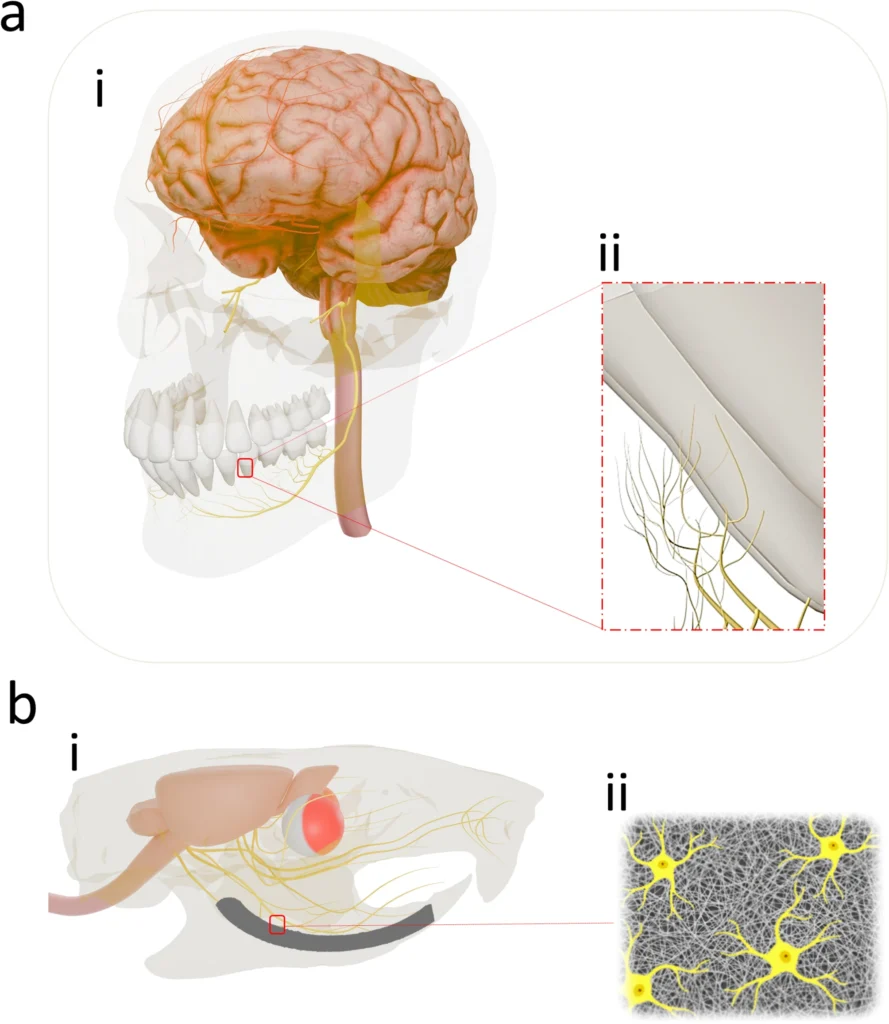Researchers at Tufts University have developed a revolutionary dental implant that closely mimics the sensory feedback of natural teeth. Traditional implants lack the ability to sense pressure and texture, but this new “smart” implant integrates a biodegradable coating containing stem cells and proteins that encourage nerve tissue growth. This innovation could significantly improve chewing and speaking functions for patients.
The implant also features a memory foam-like nanofiber structure that gently expands to fit the socket, allowing for a minimally invasive procedure that preserves existing nerve endings. In preclinical trials, the implants remained stable with no signs of inflammation or rejection, suggesting strong potential for human applications. The next phase of research will focus on confirming whether the regenerated nerves effectively relay sensory information to the brain.
This breakthrough could extend beyond dental implants, potentially transforming bone implants used in hip replacements and fracture repairs. By reconnecting nerves and restoring natural function, these smart implants pave the way for more advanced prosthetic solutions.
Article from Tufts University: What if Dental Implants Could Feel More Like Your Real Teeth?
Journal abstract from Scientific Reports: Surgical considerations towards inducing proprioceptive feedback in dental implants

